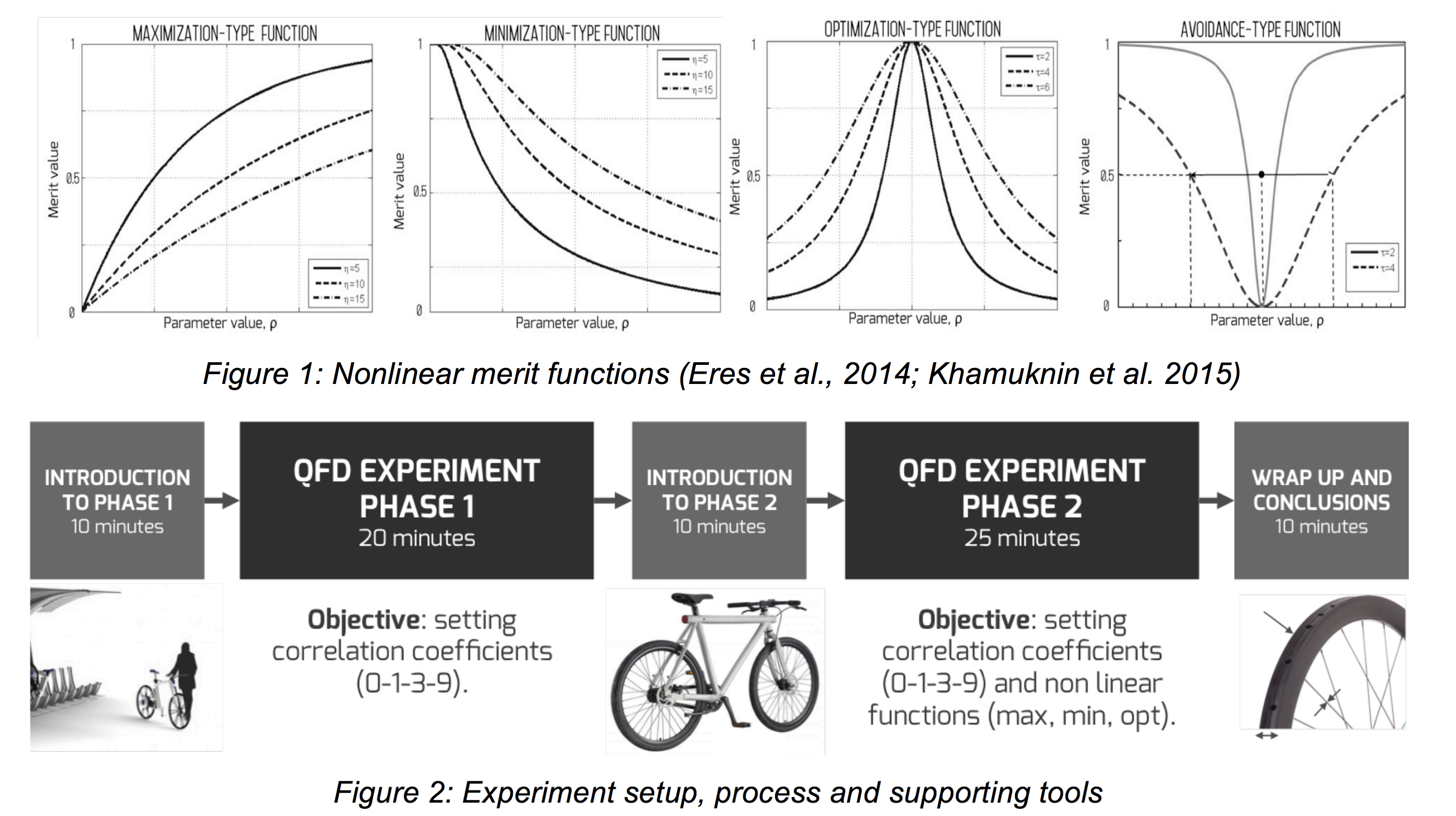
Nonlinear Quality Function Deployment: an experimental analysis
- Post by: Tobias Larsson
- 2nd October 2017
- No Comment
ABSTRACT
Quality Function Deployment (QFD) is a common model to frontload engineering design activities with, linking the characteristics of a product vs. the voice of the customer using linear relationships. This approximation is often claimed to be misleading when dealing with the design of complex engineering systems. The paper presents the results of experimental activities aimed at verifying usability and effectiveness of nonlinear functions as extension of the QFD logic. A total of 40 experiments was conducted in a given design episode, involving 139 participants, to analyse the trade-off between the benefit of introducing nonlinearity vs. effort and cost triggered by increased complexity in the modelling. The results show that nonlinear functions, while improving the granularity of the QFD mapping, keeps the method simple enough to work as ‘boundary object’ in cross-functional design teams, irrespectively from the experience of design team members. The experiments also highlight how users’ cognitive attention in the task is dependent from the format by which nonlinear merit functions are presented.
KEYWORDS
CITATION
DOWNLOAD
http://urn.kb.se/resolve?urn=urn:nbn:se:bth-14142
